Gibraltar Government hits out at ‘sensationalist’ reporting of EU tobacco smuggling report
FAKE TV scenes depicting tobacco smuggling in Gibraltar have been slammed by the Gibraltar Government, following the uproar over an EU report. According to the anti-fraud office OLAF’s report, tobacco smuggling on the Rock cost the EU €700 million in tax revenue between 2010 and 2013. Spain’s High Court has opened up an official investigation, following the recommendation of the 400-page report, sent to the Spanish and UK governments. “There are reasons to believe that tobacco smuggling and money laundering that affect financial and other interests of the EU have been committed in Gibraltar,” concludes the report.
Lear More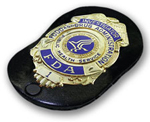
Owner of Turkish wholesaler pleads guilty in fake Avastin case
FDA badgeThe owner of Turkish wholesaler Ozay Pharmaceuticals has pleaded guilty to smuggling misbranded and adulterated cancer drugs into the US. Sabahaddin Akman pleaded guilty in a district court in St. Louis, Missouri, where he initially shipped the illegal drugs, which did not meet the FDA’s standards and had not been approved for distribution in the US. The FDA’s Office of Criminal Investigations (OCI) coordinated a complex, multi-layered international investigation that led to Akman’s arrest in Puerto Rico in January 2014. The investigation identified Akman and his company as a source of Altuzan, the Turkish version of Roche’s cancer treatment Avastin (bevacizumab).
Lear MoreNAFDAC warns against fake drugs
Victoria Ayuwei—-The National Agency for Foods and Drugs Administration and Control is warning consumers about fake fake drugs and products. The Director General, Paul Orhi, at a one day workshop in Enugu urged patent medicine dealers in Enugu state to desist from stocking fake and substandard drugs. He said that the fight against such products was not for the agency alone but was one that needed everyone’s contributions. “The fight against fake product is not for NAFDAC alone; it is a fight that everyone should contribute to. “You can contribute by reporting the ones you see, avoiding fake products so that the proprietors will not flourish in the business, buying products from authentic sources and obtaining letter head receipts of purchase.
Lear More
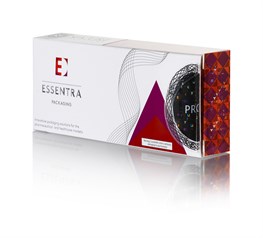
In focus: Essentra’s brand protection operations
Essentra medicine packTowards the end of last year, filtration and packaging specialist Filtrona shook up its business with a restructuring and re-branding under the Essentra name. Essentra Packaging – which incorporates the company’s photo identification cards business as well as tamper-evidence, tear tapes and anti-counterfeit and authentication technologies – recently reported first-half revenues rose by a healthy 47 per cent to £109m, although the numbers were inflated by the acquisitions of healthcare packaging businesses Contego and Dakota.
Lear MoreTrooper arrests three for possessing counterfeit clothing
ELKO — A traffic stop Tuesday afternoon led to the arrest of three woman who had counterfeit designer clothing in the back of their vehicle.
According to the Nevada Highway Patrol, Catalina Zavala-Garcia, 35, of San Jose, Calif., failed to move into the left lane while passing a trooper’s patrol vehicle that had stopped another car on Interstate 80 near Wells. Trooper Jim Stewart said legally drivers are required to move lanes in such a situation. The trooper pulled over Zavala-Garcia and spoke with her and the two passengers, Mariana E. Rios-Cervantes, 25, of Campbell, Calif., and Claudia Orozco, 20, of San Jose, Calif.
Lear More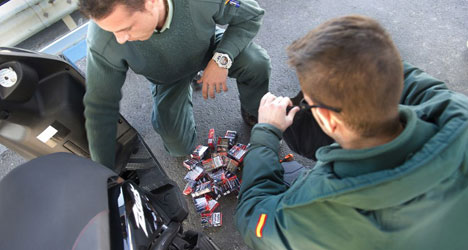
Tobacco smuggling in Gibraltar ‘cost EU €700M’
The €700-million figure is contained in a confidential new report by the EU’s anti-fraud agency Olaf, cited by Spain’s El País newspaper on Thursday. The report also fingers specific companies involved in the illegal tobacco trade, according to the daily. Olaf’s 400-page report is the result of investigations into a complaint concerning increased smuggling of cigarettes across the frontier between Gibraltar and Spain in the period 2009-2013, an OLAF spokesperson told The Local recently.
Spanish media outlets said recently Gibraltar’s cigarette imports tripled from 2006 to 2011, with 110 million packets coming into the territory in 2012 alone.
http://www.thelocal.es/20140814/tobacco-smuggling-in-gibraltar-cost-eu-700m
Lear More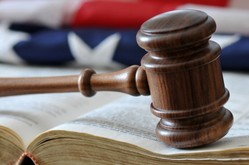
Fake parts reporting: FAR extends comment deadline
The US government has extending the comment deadline on its proposals to require contractors to report non-conforming components discovered in the supply chain, including counterfeits.
Earlier this year, the US Department of Defense issued a final rule that required certain contractors to detect and report counterfeit electronic parts, and this was swiftly followed by a separate proposal – issued by the Federal Acquisition Regulation (FAR) Council that would significantly broaden the scope of the reporting requirements.
Lear More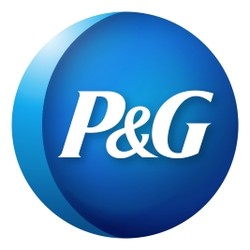
Procter & Gamble patents counterfeit detection kit
P&G_logo_squareConsumer product giant Procter & Gamble has been awarded a US patent on a chemical test kit that could be used to detect counterfeit versions of its products. The kit – described in US Patent No. 8,703,068 – “includes a plurality of test protocols to determine the presence or absence of one or more active component, diluent component, and/or preservative component in a consumer product.” Popular consumer products are common targets for counterfeiters, and P&G estimates that approximately 2-3 per cent of all fast moving consumer goods (FMCGs) sold worldwide are counterfeit.
Lear MoreChina takes down ring peddling fake Dow sealants
Silicone sealantChina has made a string of arrests in a counterfeiting crackdown that has broken a ring selling fake Dow Corning silicone sealant. Law enforcement authorities in Wuxi, Jiangsu province, broke up the ring selling the counterfeit sealant across six provinces and one city including Jiangsu, Zhejiang, Anhui and Shanghai, according to a company news release. In the process, they arrested more than 10 counterfeiters and seized imitation Dow Corning products.
Lear MoreIllegal cigarette plea as dodgy tobacco found on the streets
Pictures of illicit cigarettes potentially for sale on Lancashire’s streets have been released in a bid to bring dodgy traders to justice. Two brands manufactured specifically for the black market, called Jin Ling and L&M are suspected to be being sold. In 2012 the Evening Post launched a campaign to tackle the county’s deadly black market tobacco trade, with 40 illicit tobacco dealers prosecuted while it ran. It raised awareness of how the criminal underworld profits from smuggling illicit cigarettes and tobacco into Lancashire and selling them on the black market, often to the most impressionable in society. County Council figures suggest around 50,000 people in Lancashire smoke illegal cigarettes, many believing they are getting a good deal without realising the sickening story behind Lancashire’s illegal tobacco trade.
Lear More


